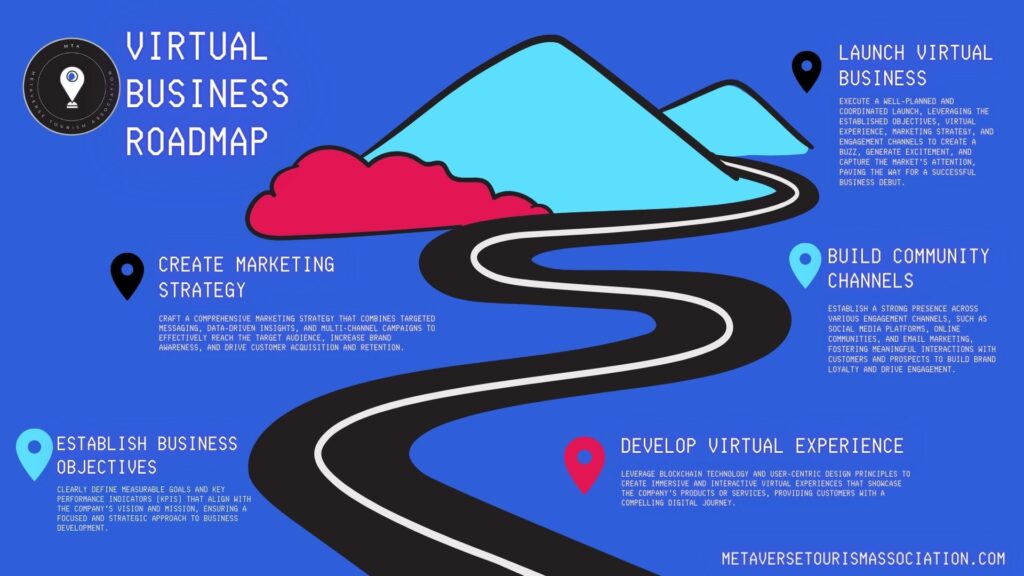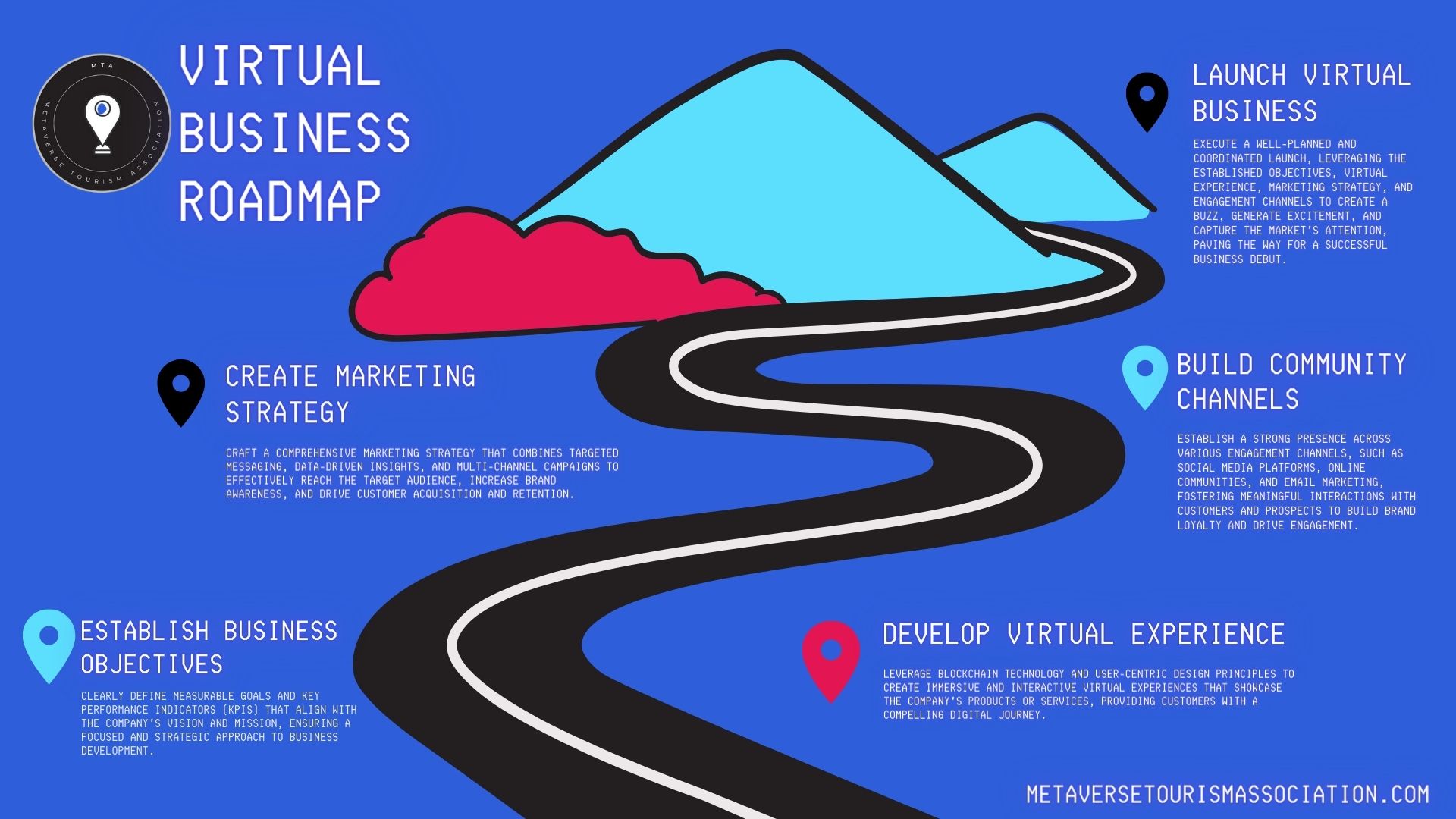In an ever-evolving digital landscape, virtual businesses are on the rise. These enterprises operate entirely online, offering products or services to a global audience. If you’re looking to start your own virtual business focusing on the tourism sector, this step-by-step guide will help you get started on the right foot.
- Define Your Purpose:
The first step in creating a virtual business is to answer the why question. Why are you designing this business and why would people want to use it or visit it? Conduct thorough market research to understand your potential customers’ needs and preferences. A well-defined why is crucial for a successful virtual business.
- Develop a Business Plan:
Just like any other business, a virtual business requires a comprehensive business plan. This plan should outline your business goals, revenue projections, marketing strategies, and an analysis of the competition. A solid plan will serve as your roadmap for growth and success.
- Choose a Business Model:
Consider the type of virtual business you want to run. Will it be e-commerce, online consulting, a digital agency, or something entirely unique? Your chosen model will influence how you structure your business and what tools and platforms you need.
- Legalities and Registrations:
Ensure your virtual business complies with all legal requirements. This includes business registration, licenses, and tax-related obligations. Seek legal advice to understand the specific regulations that apply to your business.
- Select a Memorable Name:
Metaverse platforms like Decentraland and The Sandbox are growing every day and there are many things to see and do when you visit these spaces. Your tourism business needs to stand out and be unique to be seen in the crowd. Your domain name should match your service name if possible. Choose a name that is easy to remember, relevant to your business, and represents your brand. Check for domain availability and secure it as soon as possible.
- Buy or rent your plot of virtual land
Now that you have a name you will also need a location. Reach out to the existing metaverse platforms to secure your plot of virtual land. You won’t need to architect the space but you should have an idea of the size you will need and the layout to ensure you have enough room. Decentraland, The Sandbox, Roblox, On Cyber and Spatial are some of the most popular metaverses to play with.
- Create a user friendly website and ecommerce platform:
A user-friendly and visually appealing website is the cornerstone of a virtual business. If you’re not proficient in web development, consider hiring a professional or using website builders like WordPress or Shopify. Ensure your site is mobile-responsive for an optimal user experience. If you’re selling products or services online, you’ll need a secure and easy-to-use e-commerce platform. Popular options include WooCommerce, Magento, or Shopify. Implement a reliable payment gateway to process transactions securely.

- Digital Marketing and SEO:
To attract customers to your virtual business, you’ll need a solid digital marketing strategy. This includes search engine optimization (SEO), social media marketing, email marketing, and content creation. Invest time and resources into building an online presence.
- Build a Strong Brand:
Your brand represents your business’s identity. Create a memorable logo, design, and messaging that reflect your business values and resonate with your target audience. Consistency in branding is key.
- Offer Exceptional Customer Service:
Customer service in a virtual business is vital. Ensure timely and professional responses to inquiries and issues. Building trust and a positive reputation can lead to repeat business and referrals.
- Data Security:
Security is crucial in a virtual business. Protect customer data, use secure payment processing systems, and keep software and plugins updated to prevent cybersecurity threats.
- Continuous Learning:
The digital landscape is constantly changing. Stay updated on industry trends and emerging technologies. Continuously learning and adapting to new tools and strategies will help your virtual business thrive.
- Scale Your Business:
As your virtual business grows, consider expansion opportunities. Explore partnerships, collaborations, and diversification to increase your revenue and customer base.
- Monitor and Evaluate:
Regularly monitor your business’s performance by analyzing data and metrics. Identify areas for improvement and make necessary adjustments to ensure sustained growth.
Starting a virtual tourism business requires dedication, careful planning, and ongoing effort. By following these steps and staying adaptable, you can create a successful virtual business that thrives in the digital landscape. Remember, patience and persistence are key, and your hard work will pay off as your virtual business grows and evolves.
To learn more about creating virtual businesses in virtual spaces reach out to the team anytime. We are here to help make your journey into the metaverse as easy as possible.

